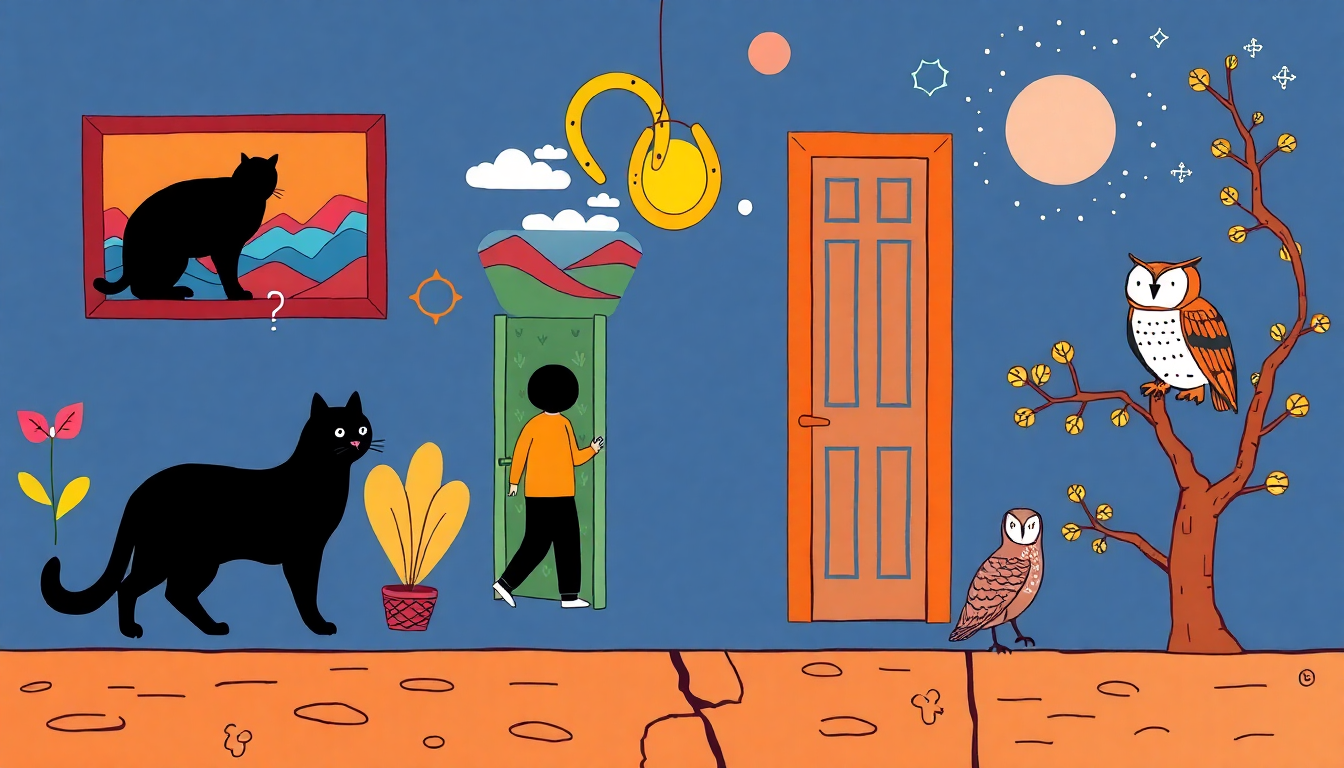Whistling at Night: An Invitation to Spirits
In some cultures, whistling at night is believed to summon spirits or even invite malevolent forces. For instance, in Turkey, it’s said that whistling after sunset calls upon demons. Similarly, in Japan, this late-night habit is thought to attract snakes. While it might sound bizarre, these beliefs are deeply rooted in the folklore of these countries.
“My grandmother once told me that whistling after dark invited ‘Yokai’—Japanese spirits—to come and play tricks on you. I never questioned it as a child and to this day, I avoid whistling at night.” – A Japanese folklore enthusiast
Stepping in Dog Poop: A Stroke of Luck?
While stepping in dog poop is generally considered an unfortunate event everywhere, in France, it has an oddly positive twist. If you step in it with your left foot, it’s considered good luck! However, if it’s your right foot, then yes, it’s just your typical bad day. This unusual superstition gives a whole new perspective on an otherwise unpleasant experience.
- Left Foot: Good Luck!
- Right Foot: Bad Luck
Why would anyone see this as lucky? One possible explanation is that it transforms an awkward situation into a moment of optimistic thinking. After all, a little positivity can go a long way!
Number Four: A Symbol of Bad Fortune
In many East Asian cultures, the number four is considered extremely unlucky because it sounds similar to the word for “death” in their languages. This aversion is known as tetraphobia and is particularly prevalent in China, Japan, and Korea.
To avoid bad luck, some buildings in these countries skip the fourth floor altogether, jumping from the third floor straight to the fifth. Similarly, the number is often omitted in telephone numbers and license plates.
“I once stayed in a hotel where there was no room numbered four or forty-four. It confused me at first, but then I realized how deeply ingrained the superstition was in their culture.” – An international traveler
Mirror, Mirror: Seven Years of Bad Luck
Breaking a mirror is widely believed to bring seven years of bad luck, especially in Western cultures. This superstition dates back to the Romans, who thought that mirrors held a piece of one’s soul. If the mirror broke, so did part of the soul, leading to misfortune unless the soul could be healed over seven years.
Interestingly, different cultures have unique remedies to counteract this bad luck:
- Throwing salt over the left shoulder to blind evil spirits.
- Burying the broken mirror shards under moonlight to rid one of the curse.
Despite its ancient roots, this superstition continues to affect people’s behavior today, often making them extra cautious around mirrors.
Avoiding Knives as Gifts in Russia
In Russia, giving someone a knife as a gift is believed to sever the relationship. If someone does gift a knife, the recipient must give a small token, like a coin, in return to avoid the bad omen. This custom likely emerged from the belief that sharp objects can cut the “ties that bind.”
While this might sound extreme, it’s not too far off from other cultures that have similar beliefs involving sharp objects.
“When I received a set of knives as a wedding gift, my Russian friend insisted I give a penny in return. It seemed strange at first, but I appreciated the cultural insight.” – An American bride
Lorem Ipsum Dolor: Fear of Empty Buckets
In Russia, encountering an empty bucket, especially if it’s the first thing you see in the morning, is considered a bad omen. This superstition is a relic from the days when an empty bucket meant failure or lack of harvest.
Some people go to great lengths to avoid this unlucky encounter:
- Covering the bucket before going to bed.
- Ensuring the first person they see in the morning isn’t carrying an empty bucket.
While this may sound odd, it underscores just how seriously people can take their superstitions.
Final Thoughts
Superstitions, regardless of their origins or peculiarities, offer a fascinating glimpse into the cultural fabric of societies around the world. Whether they bring comfort, a sense of control, or just an interesting story, these beliefs are rich with history and regional flavor. Next time you find yourself abroad, remember that the seemingly trivial acts and beliefs of a culture can provide deep insights into its collective psyche.
So, whether you’re avoiding whistling at night, cleverly sidestepping that number four, or exchanging a coin for a knife, remember that you’re partaking in traditions that have been passed down through generations. And who knows, maybe these customs might bring a little extra luck your way!
